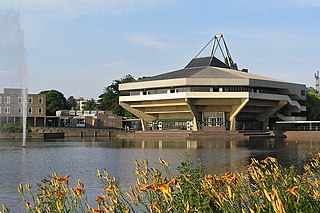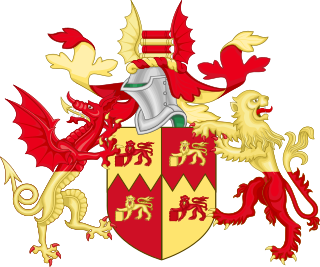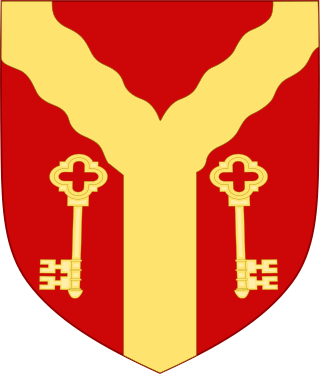Related Research Articles

The University of Wales is a confederal university based in Cardiff, Wales. Founded by royal charter in 1893 as a federal university with three constituent colleges – Aberystwyth, Bangor and Cardiff – the university was the first university established in Wales, one of the four countries in the United Kingdom. The university was, prior to the break up of the federation, the second largest university in the UK.
In the UK, a post-1992 university, synonymous with new university or modern university, is a former polytechnic or central institution that was given university status through the Further and Higher Education Act 1992, or an institution that has been granted university status since 1992 without receiving a royal charter. This is used in contrast to "pre-1992" universities.
The Middlesex Sevens was a Rugby Sevens tournament held annually at Twickenham stadium in London, England until 2011. It was first held in 1926, and started by Dr J.A. Russell-Cargill, a London-based Scot. The event was held at the end of the rugby union season in May every year for 75 years and moved to August in 2001 due to lack of available stadium dates and players in May. The Middlesex Sevens tournament was last played in 2011, as the new Premiership Rugby 7s Series caused many of the top clubs that previously took part to pull out.

A plate glass university or plateglass university is one of a group of universities in the United Kingdom established or promoted to university status in the 1960s. The original plate glass universities were established following decisions by the University Grants Committee (UGC) in the late 1950s and early 1960s, prior to the Robbins Report in 1963. However, the term has since expanded to encompass the institutions that became universities as a result of Robbins' recommendations.

Wrexham Glyndŵr University is a public research university in the north-east of Wales, with campuses in Wrexham, Northop and St Asaph. It offers both undergraduate and postgraduate degrees, as well as professional courses. The university had 6,045 students in 2019/20.

Cardiff Metropolitan University, formerly University of Wales Institute, Cardiff (UWIC), Athrofa Prifysgol Cymru, Caerdydd (APCC) and commonly referred to as Cardiff Met, is a university located in the city of Cardiff.
Master's degrees in pharmacy comprise both postgraduate and integrated master's programs in pharmacy, the latter of which comprises both undergraduate and postgraduate coursework and typically takes four to five years to complete.
A polytechnic was a tertiary education teaching institution in England, Wales and Northern Ireland offering higher diplomas, undergraduate degree and post graduate education that was governed and administered at the national level by the Council for National Academic Awards. At the outset, the focus of polytechnics was on STEM subjects with a special emphasis on engineering. After the passage of the Further and Higher Education Act 1992 they became independent universities which meant they could award their own degrees. The comparable institutions in Scotland were collectively referred to as Central Institutions.
Celtic Dragons are a Welsh netball team based in Cardiff. Their senior team plays in the Netball Superleague. In 2005–06 they were founder members of the league. Their best performance in the Superleague came in 2013 when they finished as runners up to Team Bath. Playing as Celtic Flames, Dragons also played in the 2017 Netball New Zealand Super Club. Celtic Dragons main partners include the Welsh Netball Association, the Wales national netball team and Cardiff Metropolitan University.

Percy Thomas Partnership was the trading name of the award-winning British architectural practice established some time between 1965 and 1973 as the successor to a series of earlier partnerships originally set up by Percy Thomas (1883–1969) in Cardiff, Wales in 1911/12. Percy Thomas and the Percy Thomas Partnership put their name to a number of landmark buildings in the United Kingdom including the Wales Millennium Centre, Cardiff. It opened offices overseas and completed a number of prestigious buildings in Hong Kong.
Herbert Leslie Haslegrave (1902–1999) was a British engineering academic who developed Loughborough Technical College into Loughborough University of Technology, and was its first Vice-Chancellor.
SITS:Vision, also known just as SITS, is a database application used for course and student management in further and higher education institutions, developed and maintained by the Tribal Group. It is currently used by roughly 70% of the UK higher education sector as well as international institutions such as the University of Sydney and the University of Otago.
References
- 1 2 "History and traditions". aston.ac.uk. Retrieved 30 March 2015.
- ↑ Centenary history of the Welsh College of Advanced Technology, 1966
- ↑ Taken from a degree certificate from this institution headed "The Bath University of Technology" dated 1967